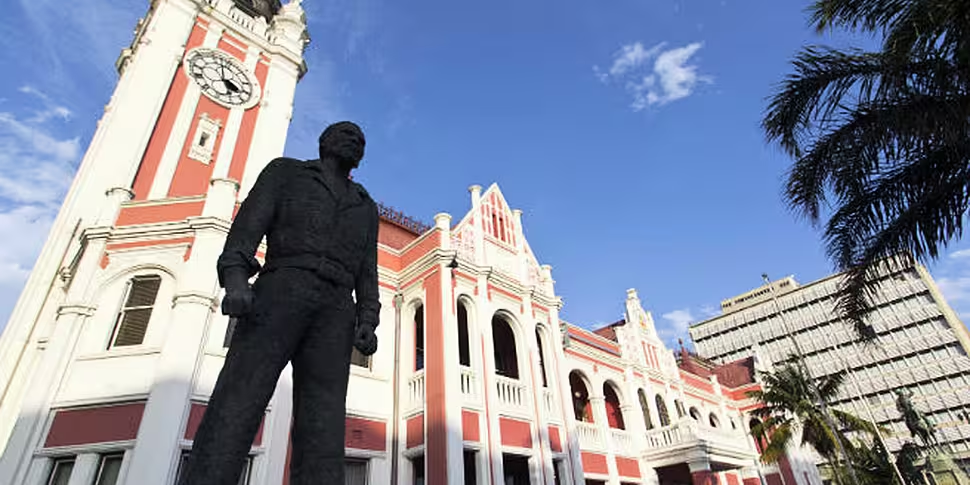On September 12th, 1977 Steve Biko died from injuries received while in police custody. His role as an opponent of apartheid and an advocate for the empowerment of South Africa's black urban population had made Biko a target for the state and the police. His death, however, turned Steve Biko into martyr and a rallying figure for the anti-apartheid movement.
Born into apartheid South Africa life was never going to be easy for the young Steve Biko. When he was just four-years-old Biko's father died, making life all that harder for the young family that was left behind in the Eastern Cape. Through hard work Biko's mother was able to support and provide for her family while the children went to school.
School provided no shelter from the apartheid regime though and Biko was expelled from Lovedale High School for his political views. This did little to hinder Biko's political voice.
After finishing school at St. Francis College Biko went on to the University of Natal to study medicine. Here he became involved with student politics and the National Union of South African Students. Biko wasn't convinced that this multiracial organisation was the best form of representation for South Africa's minority students. As Professor Adrian Guelke, another member of the NUSAS, observed: "[Biko] recognised that there was a need among his peers to develop a sense of confidence in their own capacity to do things on their own".
To this end Biko formed the South African Students' Organisation. SASO's aims were to cultivate a voice and identity for the nations' minority students distinct from the wider white student population. This desire to empower quickly reached beyond the universities and soon evolved into the Black Consciousness Movement.
The BCM pushed against the dominant white culture both on the left and on the right in an effort to make space for a black South African identity. Though controversial, especially in its relations with white liberals, the BCM became a uniting force for black South Africans and a leading movement in the struggle against apartheid.
As a leading member of the BCM and other anti-apartheid organisations Steve Biko attracted the ire of the government. In 1973 he was banned by the government of South Africa. He couldn't publish, speak in public, meet with more than one person, or leave his township - even quoting him was illegal.
Despite these restrictions Biko continued to play an important role in the struggle against apartheid. This lead to his arrest in August 1977 at a roadblock and his death less than a month later.
The bruises and abrasions on Biko's body made the official cause of death, prolonged hunger strike, a blatant lie. Thanks to apartheid there was no worry for the policemen involved, even today no prosecutions are forthcoming due to the time elapsed and lack of evidence. While Biko's death might not have been deliberate it was indicative of a regime that cared little for its opponents. As Professor Tom Lodge put it: "I don't think they cared one way or another whether [Biko] was alive or dead".
While Biko's death was a tragedy, especially for those closest to him, it also acted as an incentive to continue his work. While the government had kept him, reasonably, silent while alive Biko's voice and message was amplified in death. His story began to spread through South Africa and the world, undermining apartheid with every repetition.
Patrick talked about the life, death, and legacy of Steve Biko with a panel of historians, activists, and people who knew and loved this great man. What was Steve Biko like? Who was the man behind the ideas? What did he achieve in life? What impact did his death have on the world? And is his legacy secured?









